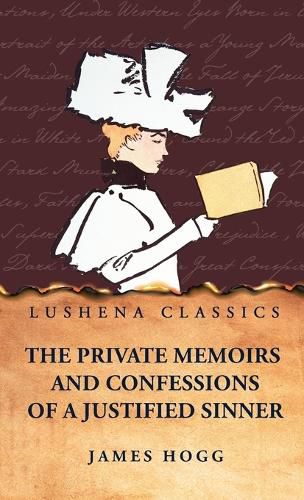Readings Newsletter
Become a Readings Member to make your shopping experience even easier.
Sign in or sign up for free!
You’re not far away from qualifying for FREE standard shipping within Australia
You’ve qualified for FREE standard shipping within Australia
The cart is loading…






This title is printed to order. This book may have been self-published. If so, we cannot guarantee the quality of the content. In the main most books will have gone through the editing process however some may not. We therefore suggest that you be aware of this before ordering this book. If in doubt check either the author or publisher’s details as we are unable to accept any returns unless they are faulty. Please contact us if you have any questions.
The Private Memoirs and Confessions of a Justified Sinner by James Hogg is a gothic novel that explores themes of religious fanaticism, identity, and psychological torment. Set in early 18th-century Scotland, the story is framed as a found manuscript and tells the tale of Robert Wringhim, a young man raised under strict Calvinist beliefs. Convinced he is among the "elect" and thus incapable of sin, Robert falls under the influence of a mysterious, devil-like figure named Gil-Martin, who urges him to commit a series of murders-including that of his own brother.
As Robert's grip on reality deteriorates, the novel blurs the line between supernatural possession and mental illness. The dual narrative structure-one from an editor and the other from Robert's own "confessions"-raises questions about truth, morality, and self-delusion. Hogg's novel is a powerful critique of religious extremism and a landmark in early psychological horror.
$9.00 standard shipping within Australia
FREE standard shipping within Australia for orders over $100.00
Express & International shipping calculated at checkout
Stock availability can be subject to change without notice. We recommend calling the shop or contacting our online team to check availability of low stock items. Please see our Shopping Online page for more details.
This title is printed to order. This book may have been self-published. If so, we cannot guarantee the quality of the content. In the main most books will have gone through the editing process however some may not. We therefore suggest that you be aware of this before ordering this book. If in doubt check either the author or publisher’s details as we are unable to accept any returns unless they are faulty. Please contact us if you have any questions.
The Private Memoirs and Confessions of a Justified Sinner by James Hogg is a gothic novel that explores themes of religious fanaticism, identity, and psychological torment. Set in early 18th-century Scotland, the story is framed as a found manuscript and tells the tale of Robert Wringhim, a young man raised under strict Calvinist beliefs. Convinced he is among the "elect" and thus incapable of sin, Robert falls under the influence of a mysterious, devil-like figure named Gil-Martin, who urges him to commit a series of murders-including that of his own brother.
As Robert's grip on reality deteriorates, the novel blurs the line between supernatural possession and mental illness. The dual narrative structure-one from an editor and the other from Robert's own "confessions"-raises questions about truth, morality, and self-delusion. Hogg's novel is a powerful critique of religious extremism and a landmark in early psychological horror.